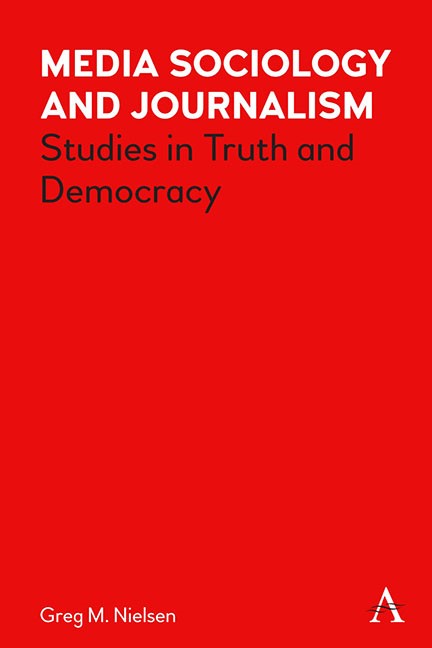Book contents
- Frontmatter
- Contents
- Acknowledgments
- Introduction: Between The Posts
- 1 Fake Populism and News: Freedom versus Democracy
- 2 Political Theory: Deliberative, Agonistic and Dialogic Democracy
- 3 Contemporary Sociology, Journalism and Society
- 4 Acts of Journalism: Truth, Ghosts and Migrant Subjects
- 5 Writing Inequality into the Urban Commons
- 6 Exotopy and Cultural Boundaries: The Secular Question in Quebec
- Conclusion: Is Another Journalism Possible?
- References
- Index
Introduction: Between The Posts
Published online by Cambridge University Press: 15 November 2023
- Frontmatter
- Contents
- Acknowledgments
- Introduction: Between The Posts
- 1 Fake Populism and News: Freedom versus Democracy
- 2 Political Theory: Deliberative, Agonistic and Dialogic Democracy
- 3 Contemporary Sociology, Journalism and Society
- 4 Acts of Journalism: Truth, Ghosts and Migrant Subjects
- 5 Writing Inequality into the Urban Commons
- 6 Exotopy and Cultural Boundaries: The Secular Question in Quebec
- Conclusion: Is Another Journalism Possible?
- References
- Index
Summary
The media and political storm that has been raging for the past seven years spreads way beyond the 2016 US election and Brexit referendum. Navigating deep divisions over what constitutes a score between the posts of truth and democracy has become increasingly difficult. Take for example someone like Dr. Fauci who journalists look to for official information about Covid-19. Somehow he became one of the most despised figures of the hard right now, struggling to take up a position at the center of the conservative Republican movement in the United States. Shamelessly slandered publicly and violently threatened in the privacy of his home, he argues back at the extremes: “There is no truth, […] There is no fact. People believe hydroxychloroquine works because an Internet charlatan claims it does. People believe the 2020 election was stolen because a former president says so. People believe that Fauci killed millions of people for the good of his stock portfolio because it’s implied by TV pundits, Internet trolls and even elected leaders” (Zak and Roberts 2022). He often concludes his interviews with the stark comment that whatever will to freedom is chosen by dissenting actors, the virus remains utterly indifferent. The pandemic has produced many perplexing examples like this.
Boris Johnson, for example, was praised by his partisans for his stand in the Leave campaign that ripped away a piece of European identity from unsuspecting UK urban youth. Journalists and members of his own party got excited about the push to make him resign because of drinking parties at Downing Street during the lockdown. I understand that he is that kind of politician who gets in and out of these sorts of situations regularly, but as an outsider to British political culture, getting fired because of drinking at an illegal party seems out of proportion, compared to whatever lies were told to get the United Kingdom out of the European Union (Webber 2022). Closer to home, a tiny minority of Canadian Truckers are reported to have reproduced a loud horn-honking imitation of the failed January 6 insurrection that brings the same fringe elements into a new hard right block on this side of the a peaceful transfer of power and no important groups are left out.
- Type
- Chapter
- Information
- Media Sociology and JournalismStudies in Truth and Democracy, pp. 1 - 16Publisher: Anthem PressPrint publication year: 2023

